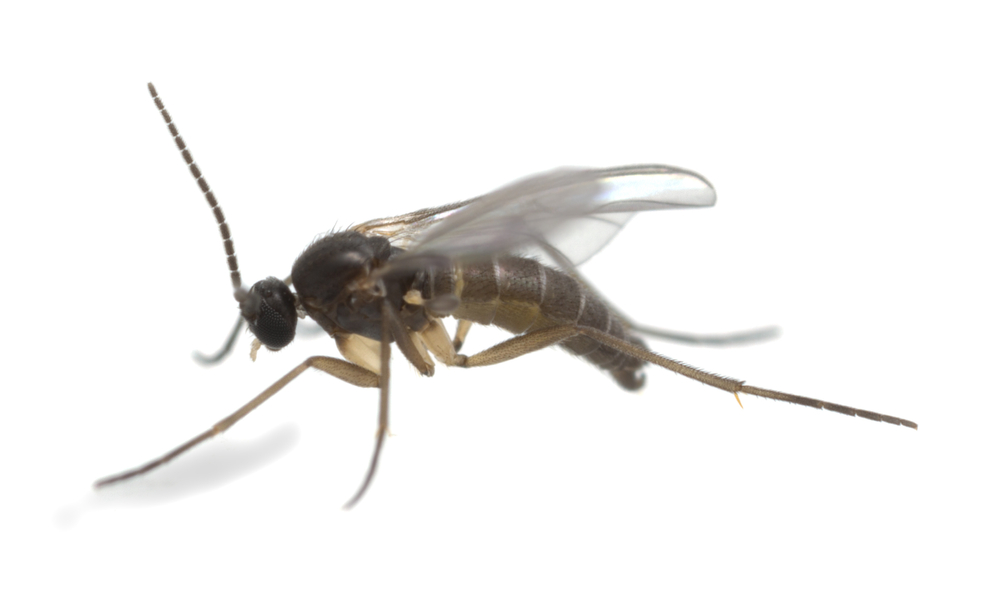Are Fungus Gnats Harmful?

Are fungus gnats harmful? Adult fungus gnats don’t damage plants or bite people; their presence is primarily considered a nuisance. Larvae, however, when present in large numbers, can damage roots and stunt plant growth, particularly in seedlings and young plants.
Fungus gnats are small, dark, short-lived gnats about 0.08–0.3 inches long. Most fungus gnats are weak fliers and can often be seen walking rapidly over plants and soil, rather than flying. However, when airborne, the gnats may be quite annoying to humans by flying into their faces, eyes, and noses, both indoors and outdoors. These flies are sometimes confused with drain flies.
ANTIFREEZE PROTEINS
Some fungus gnats are exceptionally hardy, being able to tolerate cold conditions through their possession of antifreeze proteins. Typically, overwintering organisms can either avoid freezing or tolerate freezing, some can do both.
ARE FUNGUS GNATS HARMFUL?
Fungus gnats are typically harmless to healthy plants and humans but can inflict extensive damage to seedlings; their presence can indicate more serious problems. In houseplants, the presence of fungus gnats may indicate overwatering; they may be feeding on roots that have been immersed in water too long and are thus rotting, or the gnats may be attracted to fungus growing in saturated topsoil.
CONTROL
In houseplants, allowing the soil to dry may reduce their numbers. The pests are sometimes also managed by placing a layer of sand or indoor mulch on top of the soil around houseplants.
Hydrogen peroxide can be mixed with water and used to kill fungus gnat larvae in infected soil with a mixture of one part 3% hydrogen peroxide mixed with four parts water, then applied to the soil. Adults can be trapped with yellow sticky traps made of yellow card stock or heavy paper coated in an adhesive since the adults are attracted to the color yellow.
Since the gnats are weak fliers, fan-based traps as well as other fly-killing devices may be used to help control free-flying gnats, especially indoors. There are a number of toxic and non-toxic methods of controlling the little guys and their larvae, including nematodes, diatomaceous earth, or powdered cinnamon.
NEED HELP?
If you suspect an invasion of these little gnats, please contact us HERE. We’d love to help!
If you’d like additional info about fungus gnats, click HERE.
Tags: bugs, centipedes, Charlotte, Chattanooga, Cincinnati, Cincinnatti, clear defense, cleardefense, Columbia, Durham, exterminate, exterminator, fungus gnats, Greensboro, Greer, infestation, insects, Kansas City, Knoxville, Nashville, pest control, pests, Raleigh, Raleigh Durham, Richmond, Winston Salem, wolf spider